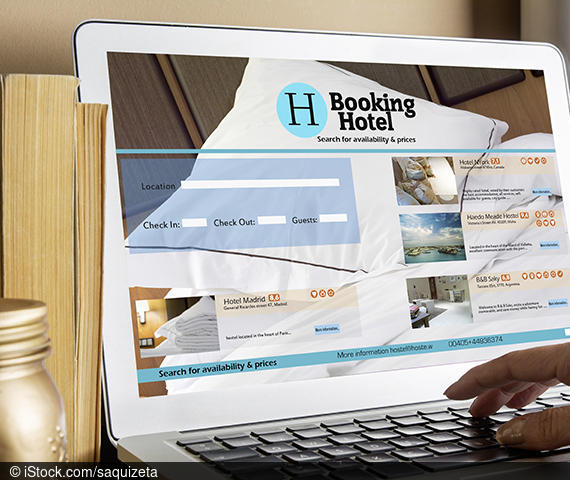Hotels Get Worse Rankings When Listed Cheaper on Other Websites
ResearchA hotel’s ranking on an online travel agent is often decisive for which hotels are booked online – and which are not. However, not every position and recommendation on platforms like Booking.com and Expedia is necessarily in the interest of the users. For example, hotels get worse positions in the recommended search results, if they offer lower prices on other platforms or on the hotels’ own website. This is the result of a study conducted by the ZEW – Leibniz Centre for European Economic Research in Mannheim, in cooperation with researchers from Télécom ParisTech and the Düsseldorf Institute for Competition Economics (DICE).
The study examines how different hotel prices across competing distribution channels affect the hotel’s position in the recommended search results of online travel agents. For this purpose, the researchers analysed search results of the two largest online travel agents, Booking.com and Expedia, as well as the meta-search site Kayak for 250 cities in various countries between July 2016 and January 2017, and tracked more than 18,000 hotels.
The data indicate that at least some hotels offer different prices across different distribution channels. One in four hotel offers is cheaper if booked on the hotel’s own website than via an online travel agent. This has, however, certain consequences. The study shows for both online travel agents that if a hotel charges a lower price on a competing platform or on its own website, this results in a worse ranking of the hotel in the platform’s recommended search results. This holds regardless of whether a country has price parity clauses or not. The greater the price difference between competing platforms, the greater the effect on a hotel’s positioning in the platforms’ search results. As a consequence, hotels with lower prices on competing channels are less visible than those who do not undercut rates. This in turn has an influence on the pricing decision of hotels and can reduce price differentiation across all channels.
Online travel agents could provide more information on the calculation of rankings
“By considering price differentials, online travel agents make their recommended search results dependent on factors that are relevant to maximising the platforms’ profits, but which are not necessarily in the customer’s interest,” explains Reinhold Kesler, a ZEW researcher in the “Digital Economy” Department and co-author of the study. However, this strategy entails certain risks. On the one hand, platforms can influence hotels’ pricing decisions across all distribution channels when optimising their search results in this way. This can to a certain extent be regarded as a substitute for price parity clauses, which were banned by competition authorities and lawmakers in several European countries. On the other hand, this can reduce the search quality for users if the search results are not in line with consumer interests.
“It would be desirable for online travel agents to better inform consumers about how they calculate their rankings labelled as ‘Recommended’ or ‘Our top picks’,” proposes Kesler. “Consumers could then make a more elaborate decision as to whether they want to actually follow the recommendation. This could in turn improve search quality for users and possibly also eliminate the anti-competitive effects of such platform strategies.”
